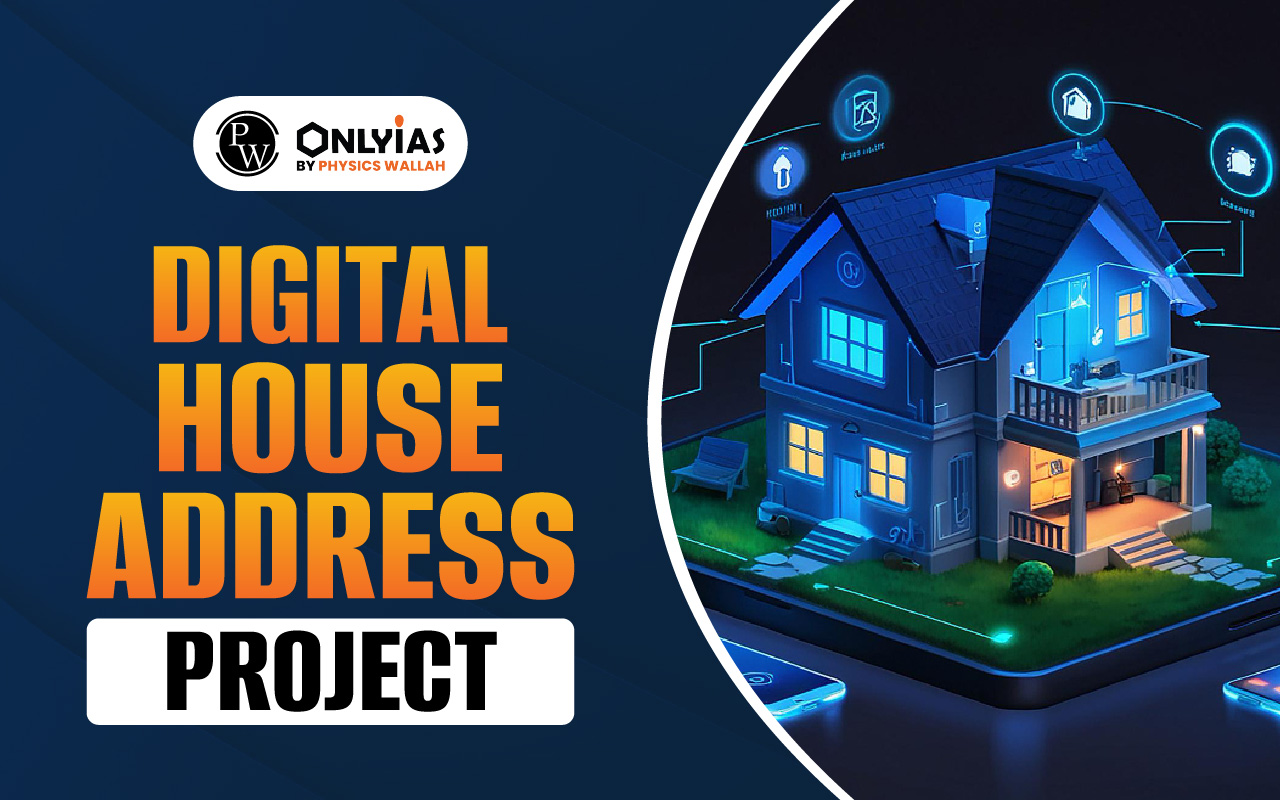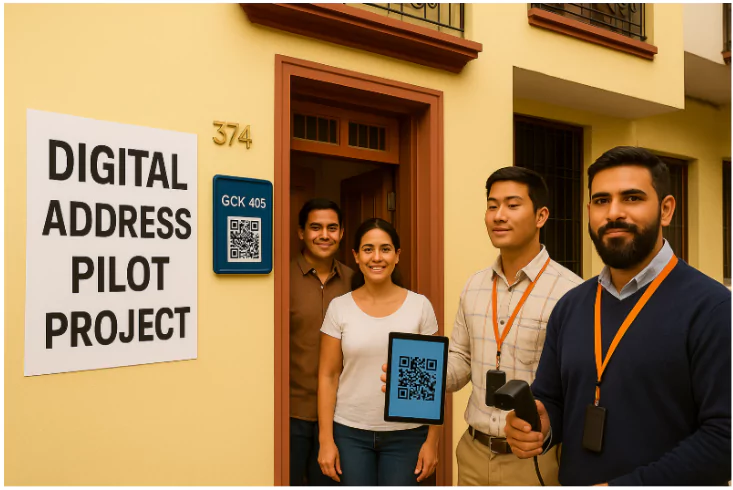Digital House Address Project in Indore integrates Digipin and GPS tech. The Digital House Address Project enables civic service access via QR code scanning.

Digital House Address Project marks a groundbreaking advancement in India’s smart city mission. Spearheaded by the Indore Municipal Corporation (IMC) in Madhya Pradesh, this initiative is being hailed as the first-of-its-kind digital address system in the country. With the successful pilot launch in Ward 82 of Sudama Nagar, the project is expected to revolutionise urban governance by making residential addresses more accessible, standardised, and digitally integrated.
With this project, Indore launches India’s first Digital House Address Project, combining the power of geospatial technology, QR codes, and digital governance.
Urban Local Governance In India
The Digital House Address Project is a digital innovation aimed at enhancing civic administration through the use of GPS-based digital addresses and QR-coded plates. Every house under this project is assigned a unique digital plate embedded with a QR code, which when scanned, reveals the precise geolocation of the property along with direct access to civic services like tax payments, grievance redressal, and more.
List Of International National Days 2025 Month-Wise List
| “By scanning the QR code with a mobile phone, the GPS-based digital address of the house can be known. Local taxes like property tax and water tax can be paid and complaints regarding civic amenities can also be lodged,”
Indore Mayor Pushyamitra Bhargava. |
|---|
This project is not just about digital mapping—it is about building a smart infrastructure that simplifies life for both the citizens and municipal authorities.

Additionally, Indore has aligned this system with the central government’s Digipin (Digital Postal Index Number), making it a pioneer in integrating local and national digital infrastructure.
The core of the digital address system using QR codes lies in its simplicity and effectiveness:
This system removes ambiguity in address identification and allows for real-time, location-based services.
The Digital House Address Project is not just a tech upgrade—it’s a structural overhaul of India’s conventional addressing system. Here are its major benefits:
Parallel to Indore’s initiative, the New Delhi Municipal Council (NDMC) is preparing to roll out a Digital Door Numbering (DDN) project. Each property will receive an alpha-numeric code, embedded with a QR code and RFID tag, offering detailed address information including main road, sub-road, building, floor, and landmark.
The NDMC project will:
This initiative, much like Indore’s, reflects the growing emphasis on creating standardised, scientific, and GPS-linked address systems in India.
India lacks a standardised, universally accepted address format. Ambiguous addresses, regional language differences, and inconsistent civic records make service delivery inefficient. The Digital House Address Project offers a simple, standardised, and scalable solution by:
Despite its promising prospects, the project faces certain implementation hurdles:
| Challenges in Implementation | |
| Challenge | Proposed Solution |
| Low digital literacy | Awareness drives and hands-on demonstrations |
| Data privacy concerns | Use of encrypted storage and secure access protocols |
| Integration complexity | Collaboration with national databases and tech partners |
| High initial infrastructure cost | Phased implementation and public-private partnerships |
The Indore digital address system has begun addressing these challenges by incorporating community feedback and ensuring a phased rollout strategy.
India’s conventional address system has long struggled with inconsistencies, vague landmarks, and overlapping or duplicate house numbers. This often leads to delays in service delivery, challenges in locating properties, and inefficiencies in data management. The Digital House Address Project offers a structured, technology-driven solution that addresses these shortcomings.
Below is a comparison highlighting the differences between the two systems:
| Traditional vs Digital Address System | ||
| Parameter | Traditional System | Digital House Address Project |
| Address Format | Textual, often confusing | Unique QR code linked to GPS |
| Accessibility | Manual lookup, physical visits | Instant access via mobile devices |
| Integration with Services | Limited | Fully integrated with civic utilities |
| Error Risk | High | Low due to systematisation |
| Real-time Updates | No | Yes |
| Emergency Support | Delayed due to vague addresses | Immediately with GPS coordinates |
If successful, the Indore digital address system could serve as a template for other Indian cities. Benefits such as smart administration, efficient grievance redressal, and faster emergency response make this model highly replicable. It also aligns with India’s broader smart city and digital governance goals.
The Digital House Address Project opens the doors to transformative governance, combining technology, transparency, and ease of living for India’s urban population.
The Digital House Address Project represents a transformative shift in India’s urban planning and governance ecosystem. By digitising addresses and linking them with essential services, Indore has set a benchmark for smart city innovation. As more cities prepare to follow suit, this project could usher in a new era of precision governance, data-driven service delivery, and empowered citizen participation.
From Indore digital address systems to national-level DDN models, India’s vision for standardised digital address systems using QR codes is taking strong and meaningful steps toward building inclusive, efficient, and future-ready urban infrastructure.
Ready to boost your UPSC 2025 preparation? Join PW’s UPSC online courses today!
It’s an initiative to assign GPS-linked QR codes to homes, integrating addresses with civic services for smart governance.
The Indore digital address system uses QR-coded plates to provide real-time access to a home’s GPS address and civic data.
By scanning a QR code on the plate installed outside the house, users access GPS location, pay taxes, and lodge complaints.
Indore is the first Indian city to launch a fully functional Digital House Address Project, linked with the Digipin system.
It simplifies navigation, supports online tax payments, and connects citizens to municipal services without physical visits.
Integration with Digipin ensures uniformity with national databases, improving postal services and administrative efficiency.
<div class="new-fform">
</div>